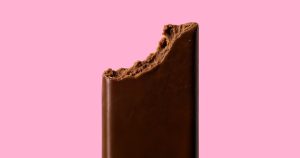
Almost certainly, in the last couple of years, you’ve run over a ton of conversations and stories about cannabidiol, also called CBD. CBD accessibility and business have exploded in the US since it was authorized at the government level and is currently legal in many states. You can track CBD on shelves in many stores, with different brands touting advantages ranging from reducing agony to helping you rest. Plus, it comes in many structures like CBD chewables, CBD oils, CBD ointments, and even CBD blended sodas. In addition, one major case that CBD allies tout is its ability to alleviate anxiety, an inclination many of us have encountered in recent years, thanks to the limited extent of the COVID-19 pandemic. Read and Find the best CBD oil for anxiety.
In any case, not all CBD is made equal, and the reality regarding the advantages is a bit complicated, all things considered. To delve deeper into whether CBD checks for anxiety and what else you should know before trying it.
What is CBD?
“CBD is one of the synthetic compounds present in plants that contain weeds,” explains Dr. Stream. CBD usually comes from hemp and, eminently, contains tiny notes of tetrahydrocannabinol (THC), the psychoactive fixative that causes the “high” in marijuana. The US, truth be told. The government limits hemp items from having a THC content greater than 0.3%. Insofar as it has demonstrated medical advantages, there has been some evidence that CBD could act as a therapy for constant agony, however, the information is still mixed. Even more significantly, however, Dr. According to the stream, “CBD has specific medical advantages that have been demonstrated in logic tests and is the dynamic fixation in an FDA-backed drug for the therapy of specific seizure problems in young people.”
Does CBD Help Check Anxiety?
Then no. CBD probably doesn’t help verify anxiety the way commercials or the narrative proof case does. “The science isn’t there yet,” says Dr. Streem, adding that while there are rationales supporting the use of CBD for the recently mentioned seizure conditions, there is still no excellent information on CBD and anxiety. Also, assuming you’re looking to these analyzes to produce evidence, settle in. As observed by Dr. Streem, focusing on providing the essential information is a challenge for scientists to address for two reasons.
Lack of supervision
The first is government oversight and bureaucratic regulations that make an investigation of cannabinoids, including marijuana, problematic. While the number of states that have sanctioned some form of Maryjane – whether for clinical or sporting use – has dramatically expanded in recent times, marijuana containing THC remains illegal at the government level.




